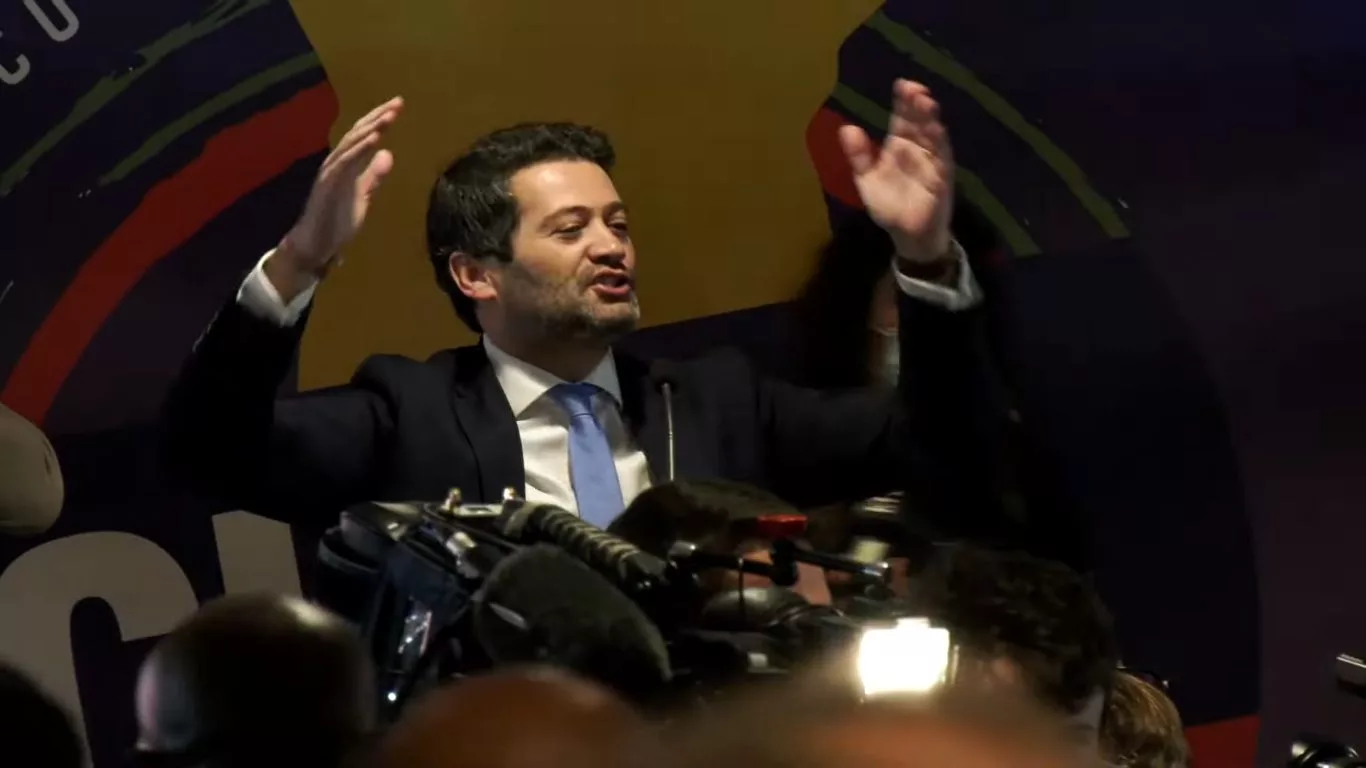The Portuguese elections in March delivered not only a resounding rejection of the corruption-riddled centre-left government, which a few years ago was viewed as an inspiration for progressive parties everywhere, but it also saw a huge surge for the populist far-right. This result means Portugal follows the trend of the rest of Europe, which it had previously bucked, with stark implications for both the future of the left and the liberal system of rights.
The centre-right Democratic Alliance (AD), a coalition of parties led by Luís Montenegro, leader of the Social Democratic Party (PSD), received 29.5% of the vote, whilst the incumbent centre-left Socialist party (PS) was close behind with 28.6%. The major shock, however, was that of Chega, the far-right populist party which got 18%, more than doubling its 7% showing in 2022: an unprecedented result for a party which was only founded in 2019 and operates in a country long regarded as the exception in Europe due the lack of any far-right parties in Parliament.
For most of this century, Portugal has suffered from economic crises, governmental mismanagement, and related austerity measures intended to ensure fiscal credibility. The problems became especially severe after the 2008 financial crisis and the Eurozone debt crisis which started in 2009. Along with Spain, Italy, Greece, and Ireland, Portugal faced problems with repaying its public sector debts and in 2011 agreed a €78 billion bail-out package with the EU, ECB, and IMF. The money came attached with ‘fiscal consolidation policies’ – strict austerity measures aimed at reducing governmental deficits which led to soaring unemployment, reduced public services, and public discontent with democracy.
Unlike in much of Europe, however, these socio-economic conditions didn’t precipitate a rise in support for the far-right: the most prominent far-right party at the time, Partido Nacional Renovador (PNR), got only 0.5% in the 2015 elections. This is possibly due in part to their association in the minds of many older voters with the dictatorial Salazar regime, which only fell in the 70s and has left many Portuguese with a deep fear of a return to authoritarianism. Instead, the results were quite evenly split between left and right, and PS formed a minority government, supported by two far-left parties. Despite worries that this government would collapse instantly, it was very successful, profiting from favourable economic conditions which saw the reversal of many austerity-era policies, whilst sticking to the EU’s tight budgetary constraints.PS and its then leader António Costa were seen as a model for left-wing governments – the New Statesman 2018 described Costa as: “popular, in power and pursuing a successful alternative to austerity.”
However, in November last year a slate of corruption scandals forced Costa to resign and brought about early elections. The victory of AD reflects widespread discontent with the corruption of PS, which follows a long line of kleptocratic incidents from both left and right. Yet reasons for the breakthrough of Chega now rather than in the previous decade, as with the rest of Europe, are less obvious. One explanation is the convergence of the mainstream parties, something best encapsulated by the former PSD leader Rui Rio saying in 2019 that his party was “not a genuine right-wing party.” Whilst Montenegro has since distanced PSD from PS, there is still a broad economic consensus between the two major parties, with PSD considered much more moderate than other centre-right parties in Europe. Other reasons include the leadership of Chega’s telegenic leader, André Ventura, who has had extensive media coverage, as well as the opposition directed against Portugal’s liberal social policies, such as on LGBTQ+ rights, euthanasia, and drugs.
More broadly, there is a growing sense that the country is at breaking point, and positive recent economic data has done little to attenuate widespread anger with current economic conditions. Most of Chega’s support is concentrated in rural regions and smaller cities, and areas such as the Algarve which feel left behind and neglected, emblematic of the long-term effects of deindustrialisation.
Yet the party is still politically isolated: Montenegro seems to have stuck to his pre-election promise of not going into coalition with them, and instead AD will form a minority government, with Chega and PS choosing not to oppose Montenegro taking power. However, difficulties are already arising, with a dispute over the election of a parliamentary speaker, which saw AD fail to get their chosen candidate elected for the full term, illustrating the fragility of Montenegro’s position. The passing of the 2025 budget also looms as a major challenge which will force compromise and negotiation on all sides. If PS and AD are unwilling to reach an agreement, Chega may become decisive in passing legislation, a monumental change for a country once considered free from far-right politics. Even if Chega remain excluded for now, the fall of PS is a sad tale of corruption and profiteering, something which only adds ammunition to anti-establishment populist rhetoric.



